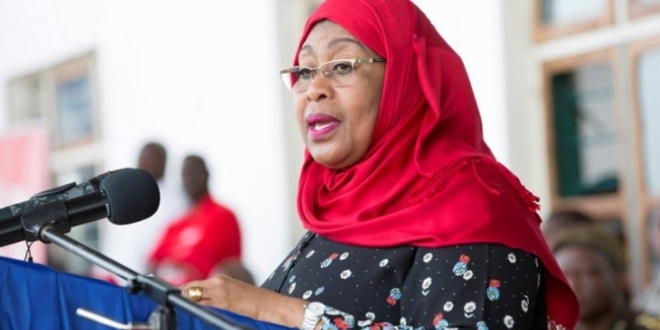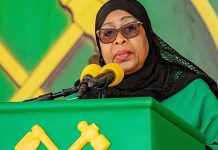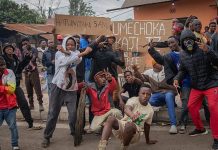AfricaPress-Tanzania: TANZANIAN women have been challenged to come up with national wide programmes on civic education to sensitize the public on gender and women’s rights issues at the time when they mark International Women’s Day (IWD) next week.
The annual event is marked on March 8th; the International Women’s Day is one of the most important days of the year to: Celebrate women’s achievements, raise awareness about women’s equality, lobby for accelerated gender parity, and fundraise for female-focused charities.
This year’s event is themed: “Women in leadership catalyst to reach an equal world,” it meant to celebrate the tremendous efforts of women and girls around the world in shaping a more equal future and recovery from the COVID-19 pandemic.
Senior Programme officer activism and movement programme from TGNP, Joyce Mkina said that international women’s day has been a day to evaluate women’s development in society in political and economic areas.
Mkina further noted that TGNP as a feminist organisation has been striving to contribute to building a vibrant transformative feminist movement that is grounded locally for evaluating women’s positions and leadership and they are utilising the various opportunities they have at their exposure.
“Democracy, accountability, and collective good leadership are important catalysts in all development sectors of a country, including improvement of achieving human rights,” Mkina said when speaking during the TGNP’s gender development series (GDSS) in Dar es Salaam.
Tanzania too has made good progress in addressing gender inequality. Important policy and legal reforms are helping to empower women and girls. These include the commitment to universal education and commitments to tackle violence against women and girls.
But despite the achievements, the majority of women in Tanzania, just as in many countries, still face inequality. They have long working hours, and receive less education than men.
Women find it more difficult than men to access resources such as land and finance. And, unfortunately, violence against women and girls also still remains a big issue.
Articles 9, 12, 13, 21, 22 66, 67, and 78 of the Constitution are specific to gender equality and women’s representation in political and electoral processes.
For instance, Article 66 states “women to constitute not less than thirty (30) percent of all the members in the national parliament.”
Gender equality is at the heart of the Global Goals for Sustainable Development: which is why we are seeking a Planet 50-50 by 2030.
Beatrice Ndosi, a participant in that seminar said that women needed more education awareness on how they can come out and vie for political and other leadership positions found in their communities.
Mary Kichau has advised fellow women to start mentoring their children from early stages to enable them to make good leaders when they grow up.
“We women should not be discouraged to direct our girls on how to become leaders. Leadership education should begin in schools. Adding: “Education curriculum to emphasize on the right to education of a girl child and gender equality be formed.”
Theresia Patrick suggested that there was a need to improve training/seminars for women to raise awareness among women to fight against gender-based harassment, early preparation for the election process, and use of democratic means of getting participants which would favour women candidates.
Reform the legal framework to meet the requirement of regional and international provisions especially on ensuring gender equality not only in parliament but in other leadership positions.
Anna Joseph called upon the amendment of the political parties Act to enforce gender equality within parties and in their nomination of candidates.
The law may for instance have a mandate that requires parties to nominate two women among the top five candidates. This may prevent parties from putting women at the bottom of party lists. The law should also apply sanctions for non-compliance by political parties.
Parties should device-specific mechanisms to ensure special groups get access to leadership and decision-making positions both within parties and in national positions.
Literature has shown that IWD is celebrated on March 8 every year. It is a focal point in the movement for women’s rights. The day originated after the Socialist Party of America organized a Women’s Day on February 28, 1909, in New York, the 1910 International Socialist Woman’s Conference suggested a Women’s Day be held annually.
After women gained suffrage in Soviet Russia in 1917, March 8 became a national holiday there. The day was then predominantly celebrated by the socialist movement and communist countries until it was adopted in 1975 by the United Nations.
Women demanded that they be given the right to vote and to hold public office. They also protested against employment sex discrimination.







